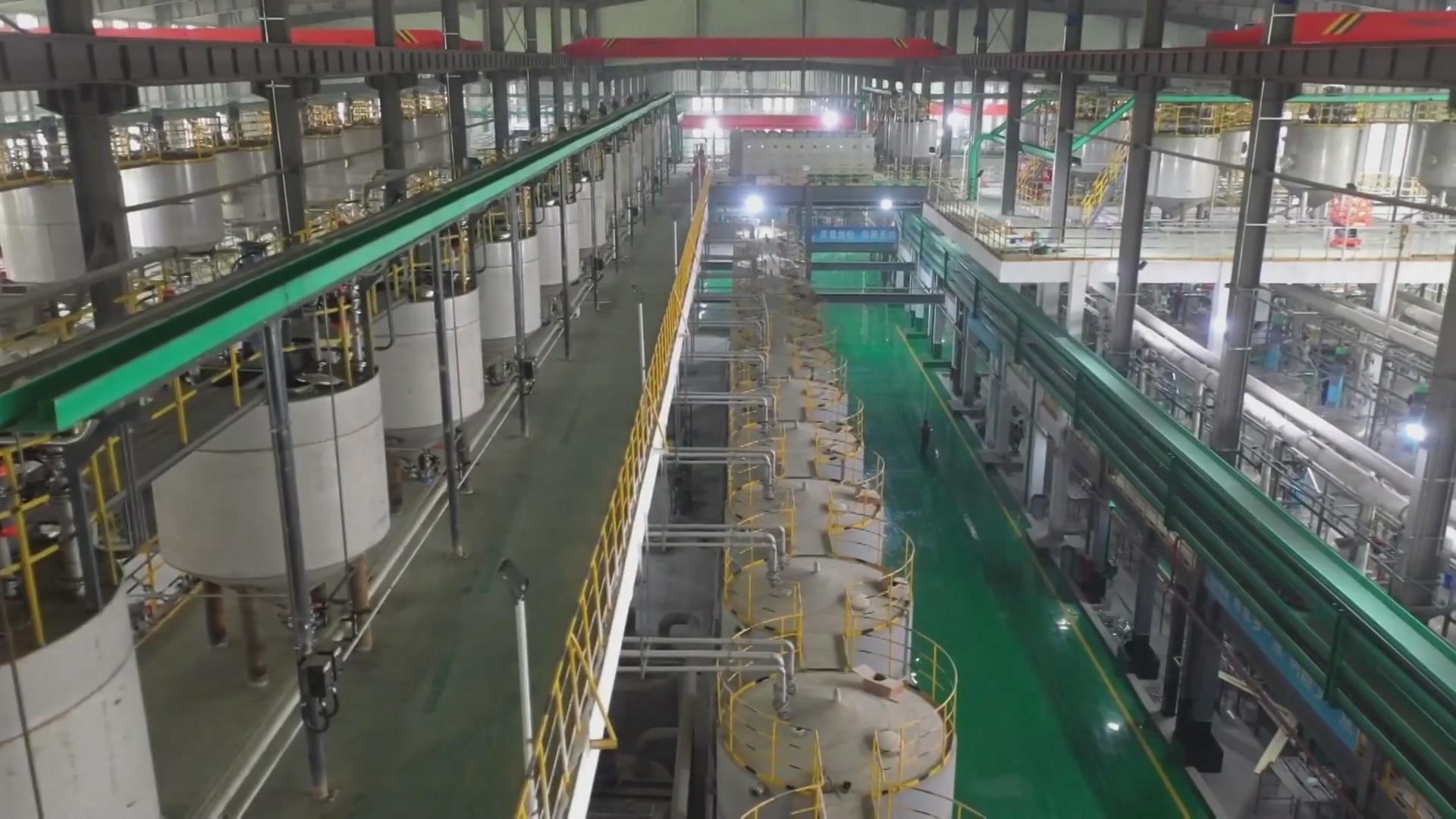
Lithium carbonate production facility in the Xinjiang Uygur Autonomous Region, northwest China. /CMG
Lithium carbonate production facility in the Xinjiang Uygur Autonomous Region, northwest China. /CMG
The first phase of a key lithium carbonate project was put into operation in northwest China's Xinjiang Uygur Autonomous Region on Sunday.
With an annual output of 120,000 tonnes of lithium carbonate, the project at an industrial Park in Ruoqiang County, Bayingol Mongolian Autonomous Prefecture of Xinjiang, is the largest of its kind in China.
With a total investment of 4.6 billion yuan (around $634 million), the project was initiated in September 2022 and follows a balanced industrial chain of "mining, mineral processing, and smelting" to be built in two phases.
Upon the completion of the second phase, its annual production capacity will exceed 120,000 tonnes, generating marketing revenue of over 30 billion yuan and creating more than 1,500 jobs.
Battery-grade lithium carbonate is primarily used to produce lithium-ion battery cathode materials. It is widely used in industries like power batteries and energy storage.
Ruoqiang County is abundant in lithium resources, with a prospective reserve of 1.2 million tonnes. The project effectively leverages local resource advantage, and transforms it into economic and industrial benefits. Utilizing state-of-the-art technologies, the project ensures high-quality of lithium carbonate while simultaneously reducing production costs and boosting production efficiency.